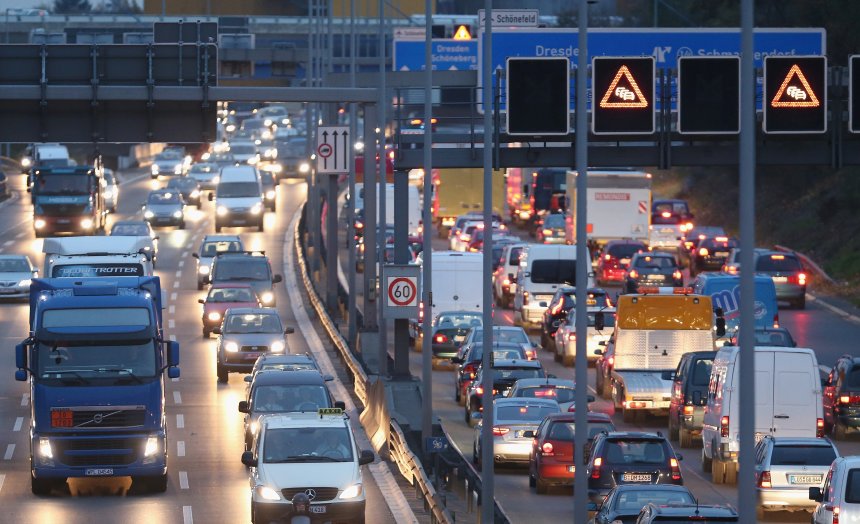National Interests versus EU law: Ausländermaut or the German toll
Despite protests of the other European countries, Germany is pushing forward with its plan to introduce a highway toll only for foreigners. This idea was invented by the Bavarian Conservatives (CSU) for the national election in 2013 and became the most essential element of the campaign. The CSU is the Bavarian sister-party of Angela Merkel’s CDU. Even though Merkel spoke out against the toll, the CSU made it conditional for their participation in the government. However, Merkel only accepted the plan of the toll, provided that the German drivers will not be charged with higher costs. This condition seemed to be lethal for the toll: as soon as the government passed the law in 2015, the EU Commission took Germany to the European Court of Justice for discrimination of EU citizens. This gave Angela Merkel the possibility to suspend the law.
In order to bring the toll in accordance with EU legislation, the CSU created a scheme which split the law in two. The first law should introduce the toll on the German highways for everyone. In the second law, the German tax payers were supposed to get a reduction on their taxes for the same amount and only leave foreigners left paying for the toll. However, the Commission rejected this idea as well, arguing that this construction still discriminates EU citizens. Nevertheless, the German minister for traffic, Dobrindt (CSU) announced he managed to come to an agreement with the president of the Commission Jean-Claude Juncker.
In this new agreement, the old concept was modified in a way, that the tax reduction for Germans was transformed into a subsidy for environmental friendly cars, and foreigners have the possibility to buy a cheap short-term pass for driving through Germany. Even though the Bavarian conservatives claim: “The tolls are coming!” and celebrate their victory against Berlin and Brussels, it is still not clear if the law will pass. The Social Democrats (SPD) accepted the plan of a toll in order to form a government, yet it is very sceptic about the whole idea. It is most likely they will pay extra attention to the details of the new agreement before they agree. But the not only the SPD is sceptical. The German minister of finances, Wolfgang Schäuble (CDU), was rejecting the whole concept of the toll from the very beginning. Recently, he announced that his ministry calculated that the new concept of the toll will generate minus-revenue: it will cost the state more money than it would general. The CSU Minister of traffic appears to come to the same conclusion and stated he does not expect the tolls come into effect after national elections in the fall of 2017. This statement and the timing of the announcement shows that the CSU plans to use the toll as topic during the national election this summer again and it is unsure if the next government will introduce the toll in the end.
Nevertheless, the toll fits well in the political direction the CSU is heading. Angela Merkels sister-party is one of the harshest critics of her liberal refugee policy and is asking for a stronger protection of the national boarder. In the end it does not matter if the toll is introduced. The new announcement of the Dobrindt is another step towards the renationalisation in Europe. Germany’s neighbour states are already organising themselves to react to the new development.
Sources:
http://www.spiegel.de/wirtschaft/soziales/bild-1123883-1079033.html
http://www.politico.eu/article/tolls-are-coming-to-germanys-autobahns/
